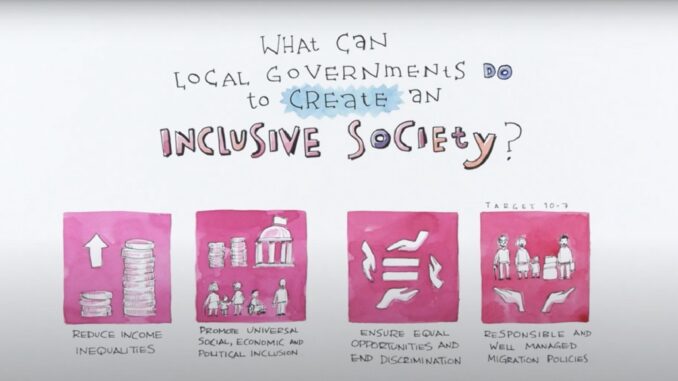
In today’s rapidly changing world, the concept of citizenship has evolved beyond legal frameworks to encompass inclusivity and respect for all individuals, regardless of their backgrounds.
Ensuring inclusivity requires an effort on the part of local government officials to ensure that all their constituents feel included and at home within their local community. Efforts to promote inclusivity can result in tensions when the views of the political, religious, or ethnic majority of the local population are pitted against the views and rights of minority groups within the community, including faith-based minority groups or local members of the LGBTQ community.
Supported by the Swedish International Center on Local Democracy (ICLD), the Faculty of Social and Political Sciences (FISIPOL) at Universitas Gadjah Mada delves into the dynamics of minority inclusion within the context of West Java’s cities in their research project, titled “Morality Policies and the Prospect for Inclusive Citizenship in Decentralized Indonesia: A Study of West Java“.
The primary objective of this research project is to offer insights into the complex interplay between cities that embrace inclusivity and those that adopt exclusionary policies against minorities. Notably, West Java presents a critical case for examination due to its substantial population, electoral influence, and the presence of cities that have demonstrated hostility toward LGBTQ and faith-based minority groups.
The video below summarizes the key findings and implications of the research project, offering a visually engaging and accessible way to understand the nuances of inclusivity, morality policies, and their impact on local governance.
Often labeled as “morality policies,” these exclusions not only impact minorities’ rights but also raise questions about the larger democratic fabric of the nation. By employing surveys and case studies, our research seeks to identify the catalysts that prompt local governments to embrace or reject these morality-framed policies against minorities. Given West Java’s pivotal role in Indonesian democracy, the findings promise to shape the blueprint for inclusive cities, where minority groups are treated as equal citizens, fostering a more harmonious and just society.
The research project addresses the following important questions:
Exclusivity Factors: Why some cities in West Java turned exclusive by adopting or maintaining an exclusionary bylaw or policy against minorities, while others have not done so.
Advocacy Implications: How can the knowledge gained from this research inform future advocacy efforts towards crafting inclusive cities?
Morality-Framed Policies: Are policies framed under the umbrella of morality more likely to be adopted or maintained in cities with specific citizen values and fewer informational barriers? How do these policies relate to citizens’ core values at an attitudinal level?
Institutional Influence: To what extent do strong partisanship and party competition at the institutional level contribute to the adoption or rejection of morality-framed policies? How do these dynamics interact with the varying practices of decentralization across cities?
By comprehending the nuances of West Java’s diverse cities and their approaches to inclusivity, the research project aims to facilitate a deeper understanding of the drivers behind exclusionary policies. In turn, this understanding can fuel future advocacy campaigns to create more inclusive urban environments, where all citizens are treated with equal dignity and respect, regardless of their backgrounds.
The intricate interplay between citizen values, institutional structures, and policy-making processes uncovered in this study holds the potential to shape the trajectory of Indonesia’s democracy.
Read more on ICLD’s website: Morality Policies and the Prospect for Inclusive Citizenship in Decentralized Indonesia: A Study of West Java
